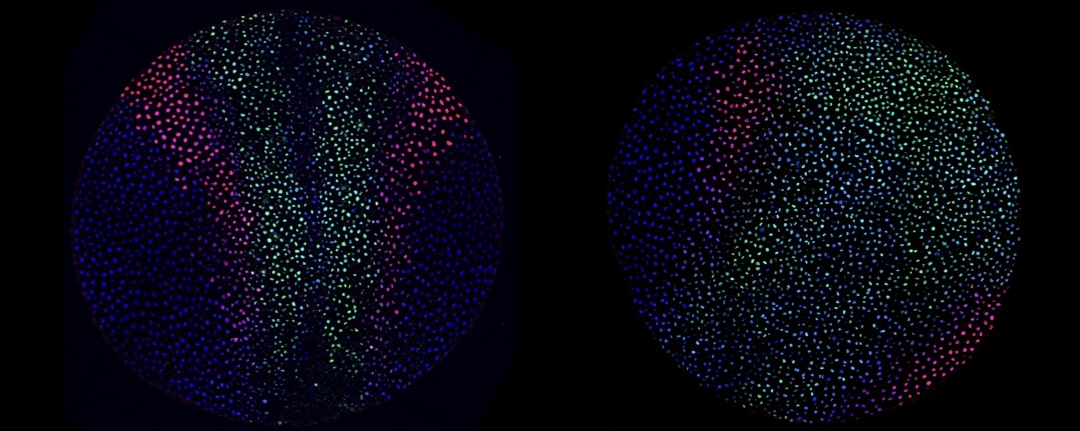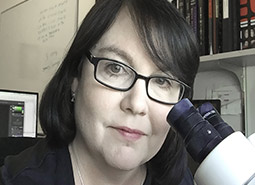
Molecular bioscientist Carole LaBonne named co-director of esteemed embryology program
The course at the Marine Biological Laboratory in Woods Hole, MA counts 15 Nobel Prize winners among its faculty and alumni
By Teresa Truong ’23 and Rebecca Lindell
As an undergraduate at the University of Rochester, Carole LaBonne gained inspiration from the famed embryologist and emeritus professor Johannes Holtfreter, a pioneer in the field of developmental biology.
From then on, LaBonne dedicated her career to the study of how embryos develop.
And now, LaBonne will have the opportunity to inspire others beyond her role as a Weinberg College professor of molecular biosciences. In January, she was named co-director of the prestigious Embryology course at the Marine Biological Laboratory in Woods Hole, Mass.
A ‘boot camp’ for embryologists
The Marine Biological Laboratory attracts students from across the globe to its immersive, discovery-based advanced research training courses. The embryology course that LaBonne will lead is particularly acclaimed for its influence on the field of developmental biology. The six-week course, offered each year since 1893, functions as a “boot camp” for exceptional postdoctoral and PhD students from around the world.
 The course has had enormous influence in shaping the study of life sciences and the field of developmental biology in particular. Fifteen former course students and faculty have won Nobel prizes, and many others are leaders in their fields.
The course has had enormous influence in shaping the study of life sciences and the field of developmental biology in particular. Fifteen former course students and faculty have won Nobel prizes, and many others are leaders in their fields.
“Training the next generation of scientists has always been extremely important to me,” LaBonne said. “I am excited to work with the amazing embryology students in this important and historic course.”
Life pursuit
True to her intentions, LaBonne has devoted her career to the study of developmental biology. After graduating the University of Rochester, she earned her PhD at Harvard University, where she studied some of the earliest decisions that embryonic cells must make. She then pursued postdoctoral work at the California Institute of Technology.
In 2001, LaBonne joined the Department of Molecular Biosciences at Weinberg College, where she is now the Erastus Otis Haven Professor and department chair. She is also the director of the Developmental Systems and Stem Cell Biology Training Cluster at Northwestern and a member of the leadership team at the University’s NSF-Simons Center for Quantitative Biology.
LaBonne’s research at Northwestern focuses on stem cells and how their potential is regulated during embryonic development. One stem cell population her group studies are neural crest cells. These cells drove the evolution of vertebrates, and defects in their development underlie a large set of birth defects and cancers in humans. LaBonne’s laboratory investigates how these cells arise, how their stem cell attributes are controlled, how they receive and interpret instructions in order to give rise to the correct cell type.
‘Endless forms most beautiful’
“One of the great frontiers in biology is understanding both how complexity is generated, and how it evolves to create what Charles Darwin memorably called ‘endless forms most beautiful,’” LaBonne said.
LaBonne’s work with the NSF-Simons Center for Quantitative Biology has the potential to drive exciting new advances in our understanding of the development of those endless forms through close collaborations with mathematical scientists. The approaches that the center is pioneering can be applied to a broad range of research organisms and questions, and LaBonne’s work with the students at the Marine Biological Laboratory will help promote the power of quantitative biology to the next generation of scientists studying embryonic development.
Back to top